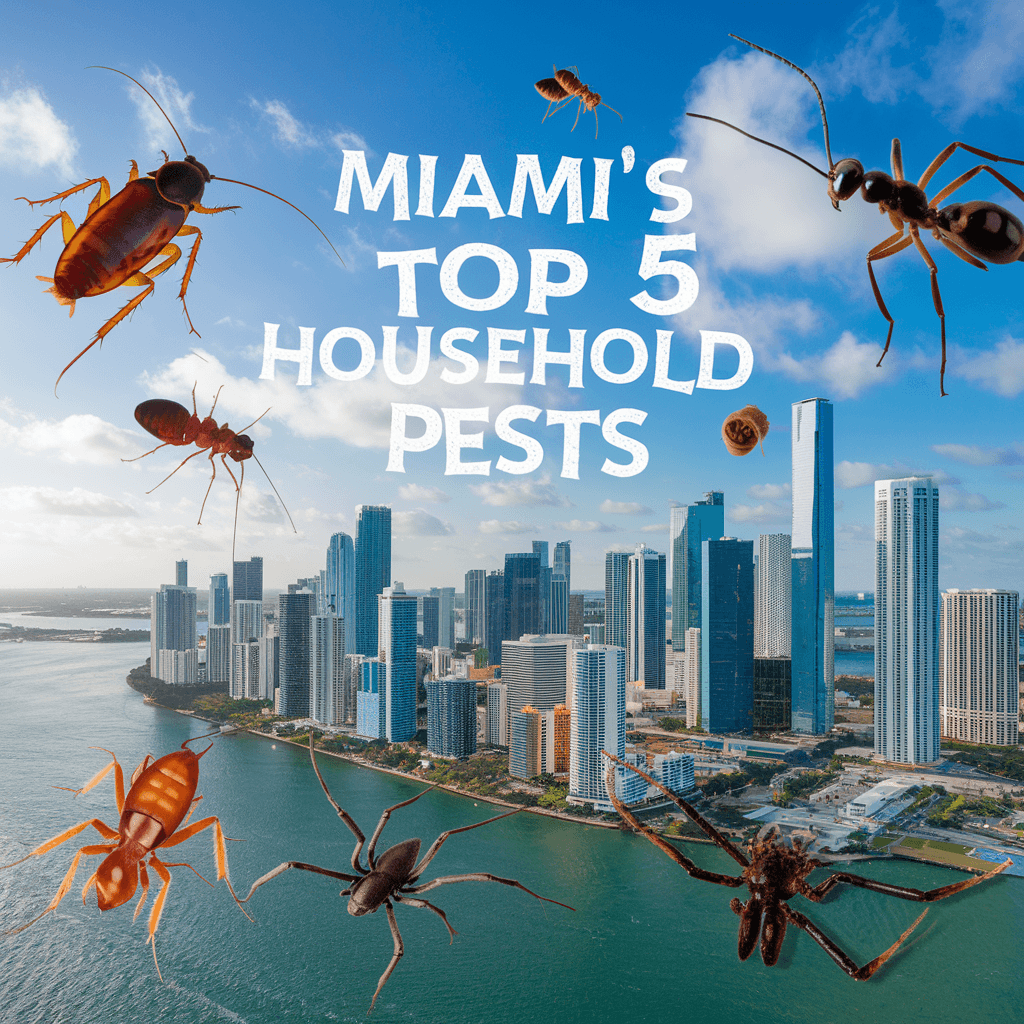Miami’s Top 5 Household Pests: A Local Guide to Pest Control
Living in Miami’s tropical paradise, from the bustling streets of downtown to the agricultural richness of Homestead, comes with unique challenges, especially when it comes to unwanted houseguests. Our diverse landscape, from South Beach to the Redland Agricultural Area, faces constant invasion from persistent pests that thrive in our warm, humid climate.
The Magic City’s Most Common Pests
Cockroaches: The Persistent Invaders
These resilient creatures love Miami’s humidity as much as we love our Cuban coffee. Whether you’re near the historic Freedom Tower or enjoying Homestead’s famous Mexican restaurants, cockroaches are a year-round nuisance. They’re particularly active in our tropical climate, contaminating food, spreading diseases, and triggering allergies in homes from Coral Gables to Homestead’s historic district.
Ants: Miami’s Tiny Armies
From Little Havana to Homestead’s farmlands, various ant species have made themselves at home in our city. Fire ants thrive in Homestead’s agricultural areas, while carpenter ants and crazy ants frequently establish colonies in our homes. These persistent invaders are particularly attracted to our year-round warm weather and abundant food sources.
Termites: The Silent Destroyers
As prevalent as art deco architecture in South Beach or historic buildings in downtown Homestead, termites pose a significant threat to Miami-Dade homes. Both subterranean and drywood termites thrive in our climate, causing extensive structural damage that can devastate both modern condos and historic properties.
Mosquitoes: The Year-Round Nuisance
Just as Homestead Speedway attracts racing fans, our climate attracts mosquitoes year-round. These disease-carrying pests breed in standing water, from Biscayne Bay to agricultural irrigation systems in Homestead, making them a constant concern for residents throughout Miami-Dade County.
Rodents: The Unwanted Roommates
From Coral Gables mansions to Homestead’s suburban homes, rats and mice seek shelter indoors. These pests are particularly problematic near restaurant districts and agricultural areas where food sources are abundant.
Prevention Tips for Miami-Dade Homes
Keep your home as clean as the pristine paths of Fruit & Spice Park by:
- Sealing entry points around windows and doors
- Storing food in airtight containers
- Eliminating standing water
- Maintaining proper lawn care
- Regular professional inspections
Frequently Asked Questions
When is peak pest season in Miami-Dade County?
While pests are year-round in Miami and Homestead, activity increases during our rainy season (May to October).
Are South Florida’s pests different from other cities?
Yes, our tropical climate, from coastal Miami to agricultural Homestead, creates perfect conditions for specific pest species that may be less common in other regions.
How often should Miami-Dade homes be treated for pests?
Quarterly treatments are recommended due to our continuous warm weather and high humidity levels, with special attention during growing seasons in Homestead.
What makes Miami-Dade homes particularly vulnerable to pests?
Our tropical climate, diverse architecture (from Miami Beach art deco to Homestead’s ranch-style homes), and proximity to agricultural areas create ideal conditions for pest infestations.
Are eco-friendly pest control methods effective in South Florida?
Yes, many environmentally conscious solutions work well in our climate, particularly important for homes near Homestead’s agricultural areas and natural preserves. Remember, protecting your Miami-Dade home from pests is as important as protecting it from hurricanes. Professional pest control services can help maintain your home as pest-free as a sunny day at Homestead’s Bayfront Park.

